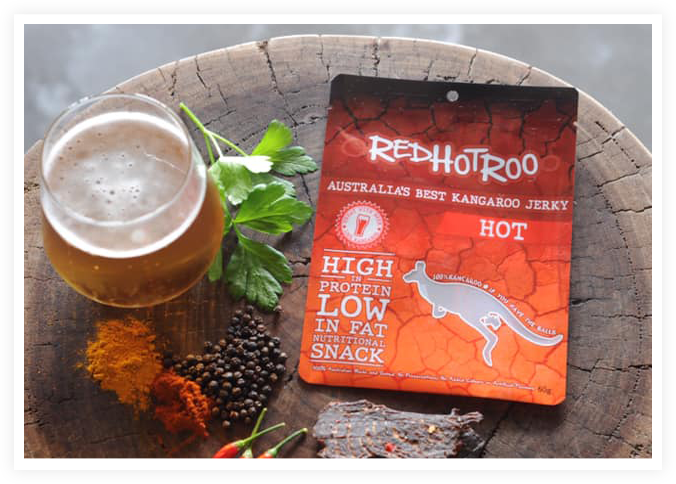Why Kangaroo?
Kangaroo meat is a sustainable, ethical, and nutritious choice that aligns with eco-conscious living and healthy eating. At Red Hot Roo, we’re proud to offer kangaroo jerky that showcases the best of Australia’s natural heritage. Here’s why kangaroo meat is the perfect choice:
1. Sustainable and Environmentally Friendly Meat
Kangaroos are native to Australia and thrive without intensive farming or habitat destruction. Choosing kangaroo meat supports:
- Low Carbon Emissions: Kangaroos produce negligible methane, offering a sustainable alternative to traditional red meats like beef and lamb.
- Minimal Water Usage: With far lower water needs than livestock, kangaroos are an eco-friendly protein source ideal for drought-prone regions.
- No Land Clearing: Free-roaming kangaroos graze on native vegetation, maintaining balance in fragile ecosystems.
2. High-Protein, Low-Fat Nutritional Benefits
Kangaroo meat is a powerhouse of nutrition:
- Lean Protein: Perfect for gym-goers, hikers, and those seeking a healthy snack.
- Rich in Iron and Omega-3: Boosts energy and supports heart health.
- Low Fat and Cholesterol: A guilt-free choice that doesn’t compromise on taste.
3. Ethical and Humane Harvesting Practices
Kangaroo meat is ethically sourced from wild populations under strict welfare regulations:
- Free-Range and Natural: Kangaroos roam freely, living as nature intended.
- Humane Dispatch: Professional harvesting ensures adherence to Australia’s high animal welfare standards.
- Sustainability: Ethical management of kangaroo populations prevents overgrazing and land degradation.
4. Authentic Australian Meat
Kangaroo meat is a true taste of Australia, offering a unique connection to the land. By choosing kangaroo:
- You support sustainable practices that protect Australia’s environment.
- You enjoy a premium product with a natural, wild origin.
Choose Red Hot Roo Kangaroo Jerky
Our jerky isn’t just a delicious snack – it’s a commitment to sustainability, health, and the environment. Whether you’re looking for a high-protein boost, a low-fat option, or an eco-friendly meat alternative, kangaroo jerky is the perfect choice.
Explore our range of flavours and experience the difference with Red Hot Roo – authentic, sustainable, and uniquely Australian.

